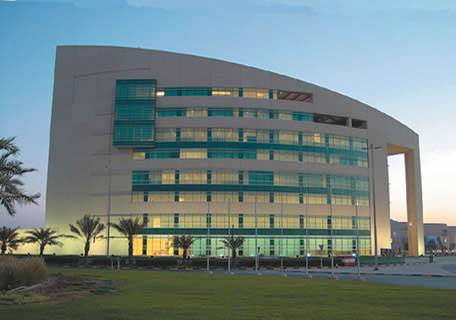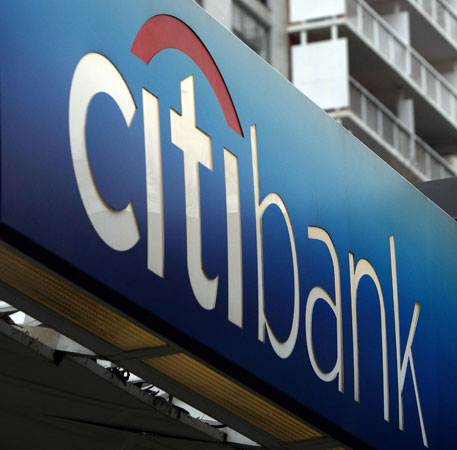Return of Investors and Confidence to Bahrain Banking Sector by Citibank
Mazin Manna, Chief Executive Officer of Citibank Bahrain
The Bahrain 2020’s are trading at a yield of around 5.7% down from their peak of 6.8% and are now trading much closer to pre-crisis levels again demonstrating investor interest in Bahrain.
Interview with Mazin Manna, Chief Executive Officer of Citibank Bahrain

How vulnerable is the private sector in Bahrain because of the events in February?
the occupancy rates of hotels have risen from 10% during the crisis to about 50%-70% today.
Bahrain’s private sector is a vibrant part of the economy and is a sector the government is keen to develop, increasing its contribution to the national economy. The small and medium sized enterprises, as well as the retail sector, were the sectors most affected by the unrest at the beginning of the year. The government has taken steps to spur growth in these sectors by waiving fees for certain businesses as well as increasing government expenditure and approving loan guarantees for small and medium sized entities.
We expect that the slow down resulting from the events of the first quarter of this year will be short lived.. We are beginning to see a return to normalcy in the tourism sector with a large number of visitors returning to Bahrain, the occupancy rates of hotels have risen from 10% during the crisis to about 50%-70% today.
We are already seeing a comeback and I believe that in the second half of the year, when Bahrain is once again slated to host a number of conferences, tourism and cultural events, the tourism and hospitality sectors, as well as the airline industry will return to more normalized levels of business.
What were the effects of the crisis on the banking sector itself and is there a need for the government to adopt quantitative easing?
Banks in Bahrain have to date weathered the crisis rather well and the effects have been limited on the sector. During the worst of the unrest, Bahrain did not witness a liquidity crisis nor was there any meaningful withdrawal of capital out of the country or out of the banks. Withdrawals of retail deposits in the banking system in the first quarter hovered around 1-1.5%, in line with their normal averages.
The central bank has not had to pump in any extra liquidity into the system and therefore the immediate impact has been limited and the first quarter results for the banks are positive. We understand that results of the 2nd Quarter are also expected to by and large reflect positive results.
The effects of the slowdown for the SME’s and the retail sectors, if any, will most probably be seen in the last two quarters of this year. At this stage, it is too early to judge any future effects because there will be a time lag between the slowdown of economic activity in the first quarter of the year and this potentially being translated into higher provisioning levels at banks and any resulting need to take reserves that could affect profitability.
Given the expected government spending over the next six months, I expect the effects on the banking sector to be limited and believe that the banks in Bahrain can absorb potentially higher provisioning levels that may be necessary as a result of the slowdown because they are well capitalized and liquid.
In terms of quantitative easing, I don’t believe that this is necessary in Bahrain. There is ample liquidity in the system and that liquidity needs to be deployed. The impact and effectiveness of quantitative easing in a situation where you already have high liquidity levels is questionable in terms of its ability to stimulate growth. We need to focus on banks regaining the confidence to re-initiate lending in the market and to create a conducive environment for them to do so.
Bahrain needs to develop secondary debt markets, repo and reverse repo markets in Bahrain to encourage and increase lending activities in the economy. The government’s expansionary fiscal policy should also
help in creating more jobs, greater spending, and providing banks opportunities to lend to deploy their liquidity. 
From a Bahrain perspective, the three months, treasury bills auction rate, is back down to pre-crisis levels. It went down from 1.25% to 0.75% and the oversubscription levels are back up to the 300-400% levels from 125% during the crisis this is a very good sign of confidence in Bahrain and is also an indicator of high liquidity levels.
The Bahrain 2020’s are trading at a yield of around 5.7% down from their peak of 6.8% and are now trading much closer to pre-crisis levels again demonstrating investor interest in Bahrain.
Rating agencies just cut the ratings of Bahrain so the cost of borrowing will go up. In a country with an asset size of almost 100% to the GDP, highest in the GCC, what will this do to the banking and private sectors in Bahrain?
If we look at the course of events in terms of the downgrades, all three rating agencies affirmed their ratings for Bahrain with a stable outlook in December of 2010 and January of 2011, Moody’s having downgraded Bahrain in August 2010. In February, two of the rating agencies made the first move towards downgrading Bahrain. The reasons mentioned for affirming the ratings in December and January were a mix of positive net international investment position, a relatively strong regulatory environment, diversified GDP, high GDP per capita and strong international relations.
None of these factors have changed over the last three or four months. Bahrain has always demonstrated fiscal discipline, and has managed its debt levels wisely. For these reasons the ratings downgrades have primarily been a result of the unrest in the first quarter, and not due to a change in the fundamentals of Bahrain and should therefore hopefully be short lived as the rating agencies become more comfortable with the situation on the ground.
Finally, while there was a spike in Bahrain’s CDS rates to 370 points at the peak of the crisis, over the last couple of weeks that has gone down to 220 and 240 points. This is a sign of renewed confidence in the economy. If we draw a comparison between the spike in CDS rates during the global financial crisis of 2009 when rates reached 715 we find that the magnitude of the increase was smaller and very short lived. We look with optimism toward the future in terms of the private sector overcoming the difficulties of the beginning of the year.
Finally, while there was a spike in Bahrain’s CDS rates to 370 points at the peak of the crisis, over the last couple of weeks that has gone down to 220 and 240 points.
In the meantime while this does raise the borrowing cost for Bahrain and Bahrain entities, there are other factors to consider. The bench mark rates are at an all time low and the spreads for regional borrowers have tightened. Therefore, while there has been a hike in borrowing costs resulting from the recent downgrades, it is still feasible for issuers to tap the market and I believe that there continues to be investor interest in Bahrain and Bahraini issues.
What is your outlook for 2011 and what are some challenges you foresee?
The banking sector in Bahrain has weathered the global financial crisis well and Bahrain banks have not had any liquidity problems due to the recent events. While there may be an increase in provisioning levels, coming on the heels of the global financial crisis, banks are much better prepared today for any eventuality. They are better capitalized, more liquid, leaner and more efficient. Therefore, they are in a much better position to absorb any potential fallout due to the recent unrest than they were three or four years ago.
Will the excess of liquidity from the government is there a risk for inflation in the future?
The economy is just coming out of a crisis and economic growth forecasts have been revised down to 3% from more than 4% earlier on. The government policy is to maintain the peg to the USD. There is a risk of imported inflation as a result of higher commodity prices but I do not believe that this is a serious problem for Bahrain today.
The rates are low and there is a risk of imported inflation, government is adopting expansionary fiscal policy, does that mean the prices for food and gas will continue to rise?
In a low interest rate environment like the one we are in, there is always a trade off between raising interest rates and economic growth. Bahrain wants to maintain its peg to the U.S. dollar. US short term interest rates are at an all time low and Bahrain rates mirror that. Therefore, the ability of the government to raise interest rates in the interim will be limited because there will be an arbitrage opportunity between the two rates.
The economy is just coming out of a crisis and economic growth forecasts have been revised down to 3% from more than 4% earlier on.
Given the desire of the government to maintain the peg to the U.S. dollar, rates will continue to be low. At the same time, it is necessary at this stage to spur economic growth as well as continue the process of extracting the economy from its period of slow-down. The Government continues to subsidize food and gas prices and the price of petrol has remained stable over the past several years despite the very substantial increase in oil prices in the past 10 years.
Let’s take a closer look at Citibank itself. You have said that you plan to continue to enhance your strong retail growth in the country. Considering the over-saturated sector, how to you structure your competitive strategy? Also, how are you different from local and foreign competitors?
Bahrain has been a major market for Citi since 1970, it is a key market for us and a key part of our regional expansion strategy. Citi is present in ten countries in the Middle East region; I believe we have one of the widest footprints in the Middle East. We have a depth and breadth of products that few other banks have. From Consumer to Investment Banking, we provide our client base with world class capabilities and work with them to develop tailor made solutions that satisfy their needs.
Citi is present in a hundred countries around the world and has a footprint in Asia, Latin America, the Middle East, Europe and the U.S. We are therefore well placed to link our clients in Bahrain and the region to a wide network around the world. We are the largest emerging markets bank.
We want to play a role in inter-mediating flows between our clients in the region and the growing markets of Asia and Africa. At the same time we provide our clients with innovative solutions to their needs. We want to work with our clients by inter-mediating trade flows, coming up with innovative investment ideas, acquisition, opportunities and associated financing.
The other part of our strategy is to look at local talent and develop it both in Bahrain and the wider region and export it into our businesses across the world. If you look at bankers in the Middle East you will find that many of them have worked with Citi. We have great alumni of ex-Citibankers in the region which gives us quite an advantage in this part of the world.
The size of Citi does allow you to choose which deals to take and make loans smaller, local banks can’t do. But how are you different from other global competitors such as HSBC who have the same scale? Why should someone choose you rather than your foreign competitors?
We don’t see local banks as our competitors but rather as our partners. We work very closely with local banks in Bahrain and the rest of the region whether on financing, developing products or white labeling. We employ this strategy because we feel that banks in the region have tremendous local knowledge and bring remarkable value in doing business in their home countries. What we have seen is that by working together the results can be outstanding for both parties.
As far as other international banks, we believe we have an unmatched breadth of products and geographic reach. As a result and as mentioned earlier, we are well placed to provide solutions to our clients, inter-mediate flows and bring opportunities from other parts of the world to our clients based in the region that other institutions cannot bring. .
Do you have any specific examples of how you connect people from different parts of the world?
We have brought many ideas and opportunities to our clients in the region. For example, we advised SABIC on their acquisition of GE Plastics. This was an 11.8 billion dollar deal. The largest chemicals deal done out of the Middle East.
We worked very closely with SABIC’s team on this deal, both in terms of providing advisory services but also in terms of financing . Today with SABICS own global footprint, we are able to service SABIC across the world. . This is something that very few other banks can do.
For example, we advised SABIC on their acquisition of GE Plastics. This was an 11.8 billion dollar deal. The largest chemicals deal done out of the Middle East.
We also advised Saudi Oger on their acquisition of Turk Telecom, a 5.5 billion dollar deal. When we look at these sorts of transactions we see the strength of Citi and its ability to work across sectors, products and geographies.
We have an initiative called ‘Emerging Market Champions’. This initiative is focused on large companies in the emerging markets that are becoming global players. Our aim is to service their banking needs through our network of branches and bankers across the globe. As they open up offices or joint ventures in China, Vietnam, Brazil, we work with them. . We already have a presence on the ground, understand these markets as well as have capabilities in retail banking, transaction services, derivatives and flow business as well as corporate and investment banking and can therefore meet their needs across the board.
You have mentioned two major deals, but are you able to help SME’s, especially companies here in Bahrain?
The SME sector is not a sector that we have historically focused on in Bahrain. We have a business that we plan to develop on the SME front but that is at a very early stage. We expect that to grow in the future but it is not something we are actively involved in, at this stage.
As a foreign bank, how do you perceive Bahrain? What are some of the advantages to being here?
Bahrain has been one of the main regional banking centers for many years and has key advantages that allow it to continue to play that role in the future.
Many diverse factors contribute to the creation of a reputable world-class financial centre like Bahrain. Using NY, London, Hong Kong and Singapore as models, certain common and key characteristics of world-class financial centers emerge. The greater the number of these characteristics that a financial hub possesses, the greater its chances of attracting and retaining world class talent, firms and, in turn, capital and investment. Some of these characteristics include
-
Open and fair financial markets
-
Sound and fair tax regime
-
High quality, reliable and appropriate telecommunications infrastructure
-
Free flow of capital and a convertible currency
-
Large and sophisticated domestic markets and/or proximity to large markets
-
Skilled workforce/flexible labor laws
-
Fair, transparent, efficient legal and regulatory regime
-
Unwavering government support
I believe that the Kingdom has many of the characteristics of a successful banking hub, a position which has been diligently built over four decades. With this in mind and with upwards of 400 financial institutions represented in the Kingdom, it’s difficult to change the view on Bahrain overnight. And I believe Bahrain will continue to maintain its position as one of the banking hubs in the region.